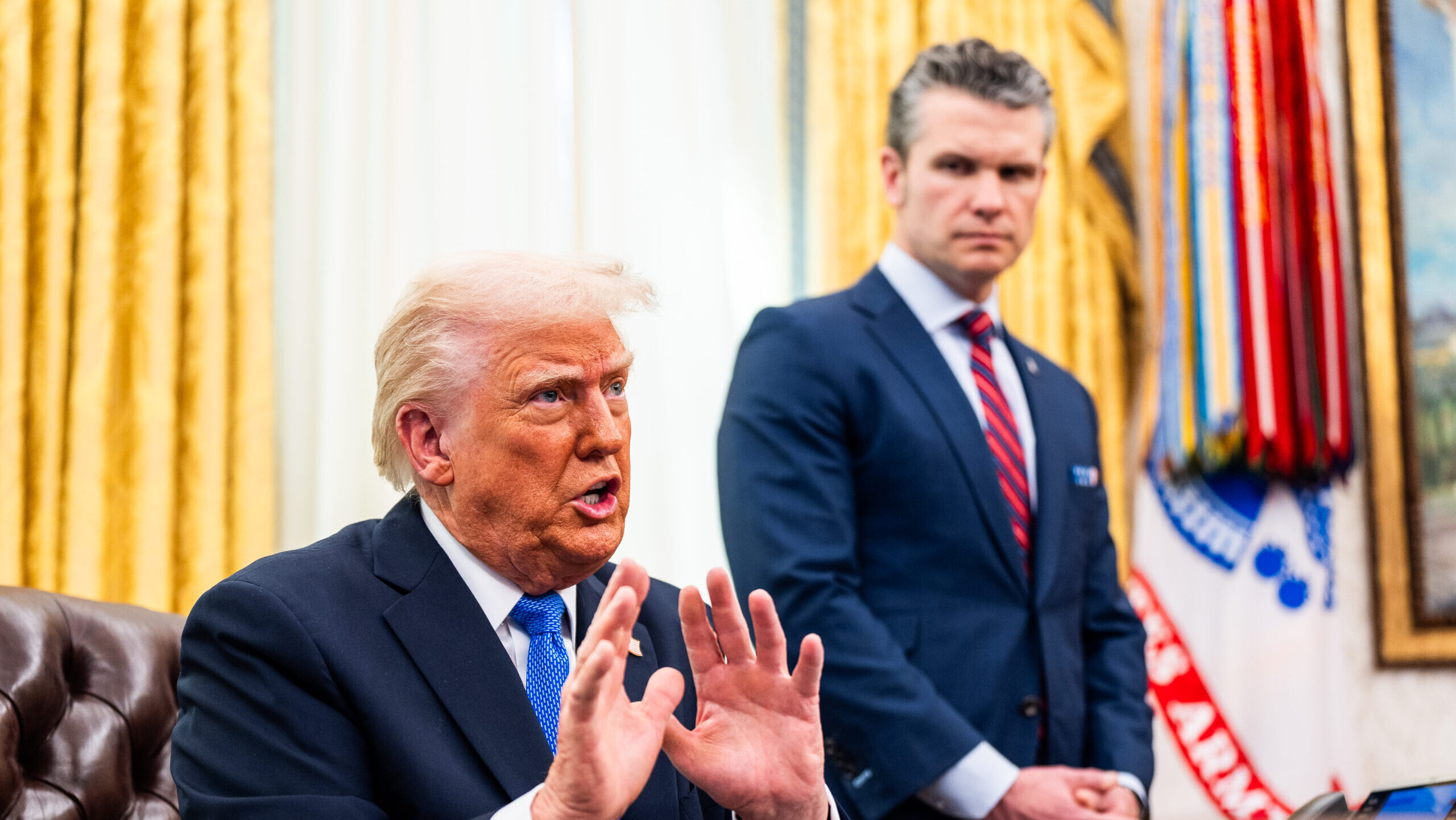A $1 trillion defense budget? Trump, Hegseth say it’s happening
“We also essentially approved a budget, which is in the [vicinity], you’ll like to hear this, of a trillion dollars,” Trump said while meeting with Israeli President Benjamin Netanyahu.


US President Donald Trump speaks during a meeting in announcing the F-47 6th generation fighter jet in the Oval Office of the White House on Friday March 21, 2025. (Demetrius Freeman/The Washington Post via Getty Images)
WASHINGTON — Speaking Monday evening in the White House, President Donald Trump made a surprise announcement: The US appears poised for its first $1 trillion defense budget request.
“We also essentially approved a budget, which is in the [vicinity], you’ll like to hear this, of a trillion dollars,” Trump said while meeting with Israeli President Benjamin Netanyahu. “$1 trillion, and nobody’s seen anything like it. We have to build our military, and we’re very cost conscious, but the military is something that we have to build, and we have to be strong, because you got a lot of bad forces out there now.
“So we’re going to be approving a budget, and I’m proud to say, actually, the biggest one we’ve ever done for the military.”
Afterwards, Defense Secretary Pete Hegseth seemed to confirm that Trump was referring to the fiscal year 2026 request, saying in a message on X, “COMING SOON: the first TRILLION dollar @DeptofDefense budget.”
Exactly when the FY26 budget will drop, or what shape it will take, remains unclear. There has been talk of a “skinny budget” with few details coming first, and rumors that May is when budgets will be officially released, but nothing confirmed from the White House or Pentagon.
In a note to investors, TD Cowen analyst Roman Schweizer wrote that “Based on last year’s Green Book, we assume this means a $50B increase for 050 National Defense, which was projected at $951B for the FY26 request.”
He noted that while the majority of that funding likely will go to DoD, some may also be earmarked for Department of Energy nuclear weapons programs.
“We believe there has been discussion within the Administration and with Congress pitting advocates of more defense spending versus those in favor of restraining defense spending,” Schweizer wrote. “It seems — at least for now — the defense hawks have won.”






























































































![F/A-XX hints, icebreaker ambitions and previewing day two of Sea Air Space [VIDEO]](https://breakingdefense.com/wp-content/uploads/sites/3/2025/04/250407_SAS_2025_indopac_WELCH-scaled-e1744076170241.jpg?#)























































































